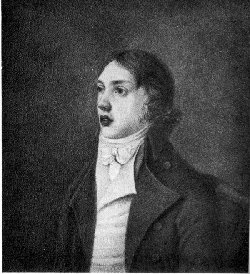
Coleridge

| Fancy |
It was Samuel Taylor Coleridge who first made a distinction (in Biographia Literaria) between "imagination" and "fancy." Following Coleridge, Barfield would define fancy as "that which is responsible for, that which produces, the kind of imagery, or combinations of images, that come into the mind ready-made and almost unbidden simply out of the impressions of the senses which the memory has stored and retained. . . . Fancy is predominately a passive thing and its productions (by contrast with those of the imagination) are 'fixed and dead'" (RM 88). Fancy, Coleridge had explained, "has no other counters to play with, but fixities and definites." As "a mode of Memory emancipated from the order of time and space;" it "must receive all its materials already made from the law of association" (Coleridge, Biographia Literaria, Chap. XIII; quoted in WCT 75).
Though fancy does
not satisfy the needs of the evolution
of consciousness, it does pave the way for more important developments,
as Barfield explains in "Where is Fancy Bred?":
Fancy has to die . . . and it is well that she should die--in order to be reborn again as imagination. . . . it is, after all, the entry of the ego into the death experience of the consciousness soul, in order to be reborn as individual spirit, as individual-universal spirit, as spirit self, life spirit, spirit man, of which we are, knowingly or unknowingly speaking, whenever we speak understandingly of a transition from fancy to imagination. (RM 92)
| See in particular "Where is Fancy Bred?" (RM 79-92). |